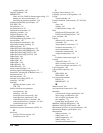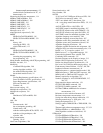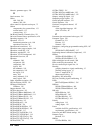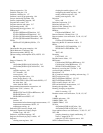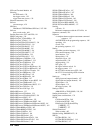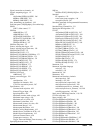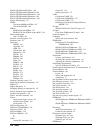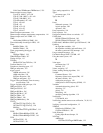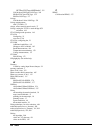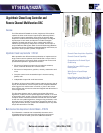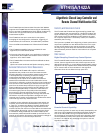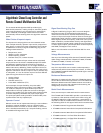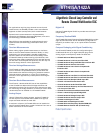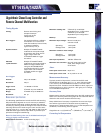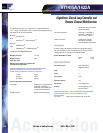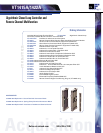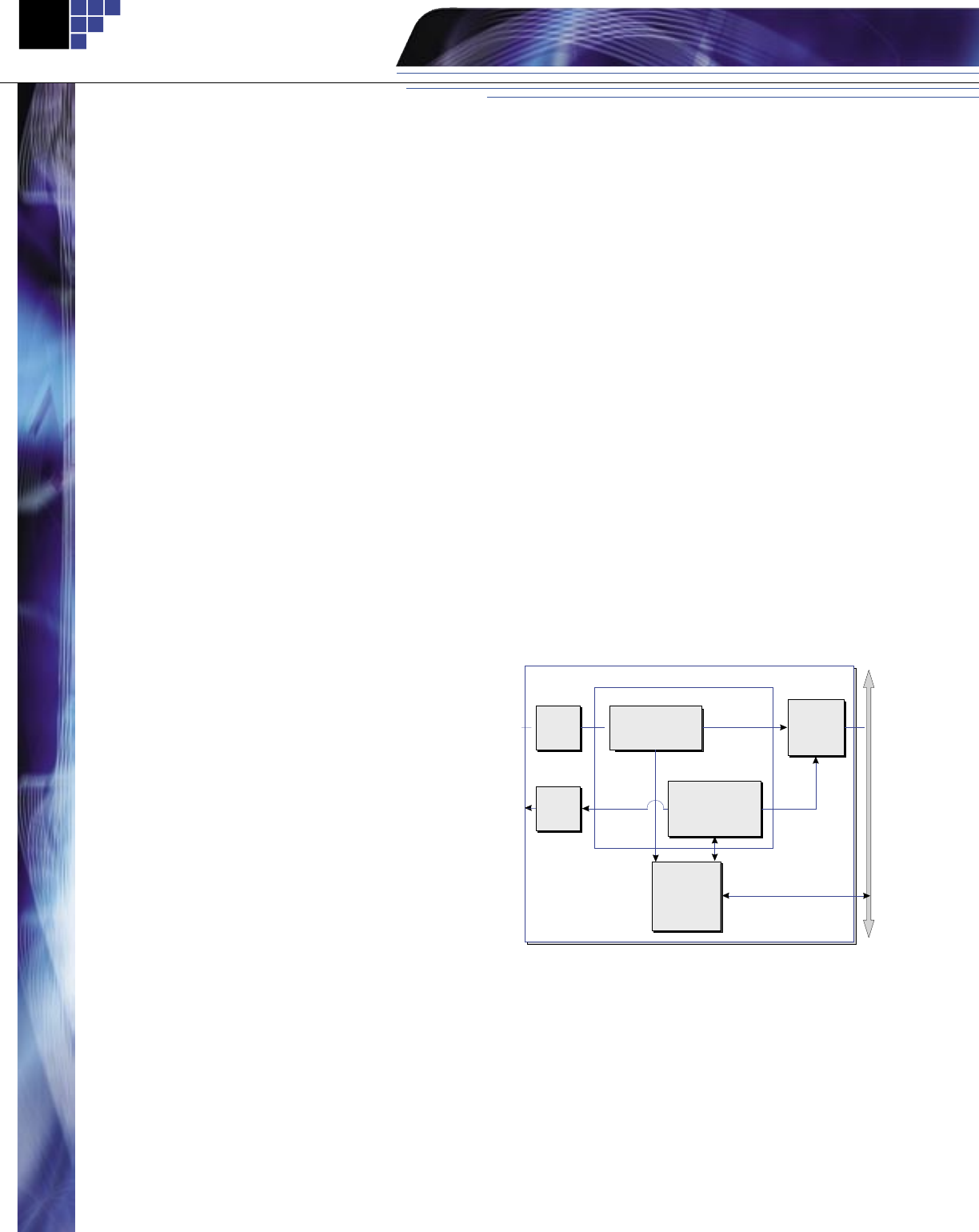
Technology
™
VXI
Acquisition
Online at vxitech.com 949 • 955 • 1VXI
210
Acquisition
Algorithmic Closed Loop Controller and
Remote Channel Multifunction
DAC
VT1415A/1422A
The VT1422A Remote Channel Multi-Function DAC Module
supports the VT1539A Remote Channel Signal Conditioning
Plug-on and the VT1529B Remote Strain Signal Conditioning
Unit to form a high-performance, but economical strain
measurement system.
The VT1422A serves as the controller in this system,
managing all the configuration, calibration, triggering of
measurements, EU conversion, and calibration processes.
The main differences between the VT1415A and VT1422A
are:
• The VT1422A has 40 kB of memory available for user
algorithms; the VT1415A has 48 kB.
• If the only thing being done in an application is collection
of strain data, the VT1422A user doesn’t have to write an
algorithm, as for the VT1415A.
• The VT1422A offers the same two Terminal Blocks as does
the VT1415A.
(Option 011 screw terminals and Option 013 spring clamp)
Automated Calibration for Better Measurements
The VT1415A and VT1422A offer superior calibration
capabilities that provide more accurate measurements.
Periodic calibration of the module’s measurement inputs
is accomplished by connecting an external voltage
measurement standard (such as a highly accurate
multimeter) to the inputs of the module. This external
standard first calibrates the on-board calibration source.
Then built-in calibration routines use the on-board calibration
source and on-board switching to calibrate the entire signal
path from the closed loop controller’s input, through the
signal conditioning plug-ons (SCPs) and FET MUX, to the
A/D itself. Subsequent daily or short-term calibrations of
this same signal path can be quickly and automatically
done using the internal calibration source to eliminate
errors introduced by the signal path through the SCPs and
FET MUX or by ambient temperature changes. All input
channels can be quickly and productively calibrated to assure
continued high-accuracy measurements.
In addition to the calibration of the signal paths within the
modules, the VT1415A and VT1422A allow you to perform
a “Tare Cal” to reduce the effects of voltage offsets and IR
voltage drops in your signal wiring that is external to the
module. The Tare Cal uses an on-board D/A to eliminate these
voltage offsets. By placing a short circuit across the signal
or transducer being measured, the residual offset can be
automatically measured and eliminated by the D/A. Tare Cal
should not be used to eliminate the thermoelectric voltage of
thermocouple wire on thermocouple channels.
Flexibility with Deterministic Control
The VT1415A and VT1422A are digital sampling closed loop
control systems that are complete in a single VXI module. All
signal conditioning, process monitoring, control calculations,
and control signals are handled on-board without the need
for computer supervision. Once setup is done, the module is
essentially free-running.
The inputs are updated at the beginning of each cycle and the
outputs are updated at a later deterministic time in the cycle
so that various paths in the control algorithm do not affect
the loop timing. These steps are executed automatically and
deterministically without need for intervention from a system
computer.
Other Features
Digital Sampling Closed Loop Control System
The VT1415A/VT1422A combine flexibility with deterministic
control. Control algorithms for each of the loops can be the
default PID calculation or a user-defined, downloaded, custom
algorithm. The loop update rate is deterministically controlled
by an internal clock so that variations in the algorithm
execution times do not affect the loop cycle time.
Powerful Control Capability
The control algorithm for each loop is easily developed by the
user from a list of algebraic expressions and flow constructs
such as IF, THEN, ELSE. Tuning is simplified because all of
the constants in the algorithm as well as the algorithm itself
can be updated on-the-fly. New values are double-buffered
so there is no need to stop scanning the inputs or halt the
algorithm execution.
Digital Sampling Closed Loop System
VXI Backplane
Signal
Cond
.
Signal
Cond
.
Engr. Unit
Conversion
Contro
l
Algorith
m
Executio
n
A2
4
Double
Buffered
Memory
FIFO
CV
T
Buffers
40 MH
z
DSP
Input
Output



